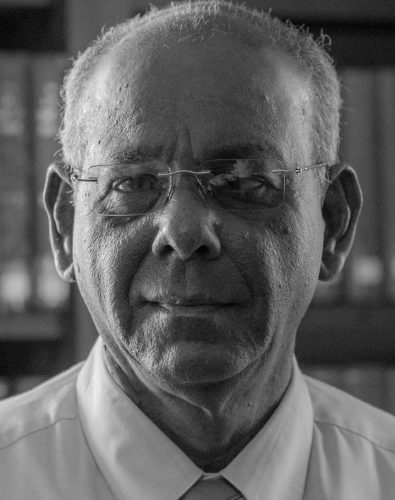As a New and United Guyana (ANUG) moves towards the 2020 general elections, it will be targetting those voters who see no future in the ethnic politics that have dominated Guyana, according to its presidential candidate Ralph Ramkarran.
During an interview with Sunday Stabroek, Ramkarran reiterated that his experience in local politics as a member of the People’s Progressive Party (PPP) and a former two term Speaker of the National Assembly has shown him that Guyana is not developing because of political instability, which drives away the investment necessary for economic development.
“The message we hope will be successful is that we want to offer a new vision for the country as we go forward. The old vision is for two large ethnic parties to appeal to two large ethnic groups in Guyana for their basic support. This has been made possible by the fact that there are two large ethnic groups which have spawned these two main political parties,” he explained.
Asked to explain which demographic of voter he specifically brings to his party, Ramkarran maintained that the “aim is to bring all demographics to the party.”
“We are hoping to get former PPP supporters, former APNU supporters and a substantial number of former AFC supporters. We are hoping to influence the mixed population as well as the hinterland voters,” he said.
Ramkarran, who was selected just over a week ago to head the party’s ticket, noted that ANUG is already working to introduce itself to voters through field visits without the cameras.
Two visits to Berbice, visits to the upper and lower east coast of Demerara and two visits to Linden have so far received a positive reaction, he explained, before adding that the number and duration of future visits will depend on the resources the party is able to secure through donations.
‘Donations wanted’
“We are living on donations at the moment,” Ramkarran explained, while making a public appeal for more donations.
“We can only rely on donations and fund raising activities which require a lot of effort to organise and requires people to sell tickets. We are appealing to public for donations from the business community and ordinary members of the public. You have $20? We are asking even for your $20,” he joked.
The politician explained that as a party with a small number of members and no established base, fundraising activities are outside its current scope.
“Our membership is small at a hundred plus but political party membership traditionally is small in Guyana. Where a party gets resources is from mass support,” he stressed.
Ramkarran indicated that he would not support campaign finance reforms which would require political parties to identify donors. “Nowhere in this region does a country publish the names of its donors because we live very small society and people are terrified that they’ll be discriminated against,” he said in response to questions before offering to identify donors if other parties do so as well.
According to Ramkarran the introduction of such legislation would see private political funding drying up and therefore require the state to begin financing political activity.
“Either have finance reform with state assistance for political parties or allow the situation to exist as it is,” he advised before noting that his party is likely to support modest reform which would see political parties forced to publicise how much they receive rather than from whom they received funding.
Asked specifically about the danger of donors using such funding to influence policy in their favour via “quid pro quo” arrangements, Ramkarran acknowledged that this was possible.
“There is the opportunity for quid pro quo, there is the opportunity for corruption, opportunity for influence of dirty money in politics but we would agree to any kind of reforms without the naming of people,” he said before adding that these types of issues exist in the largest electoral systems which have measures in place to manage campaign financing.
“There is a limit to what one can do in relation to campaign finance reform,” he reminded.









